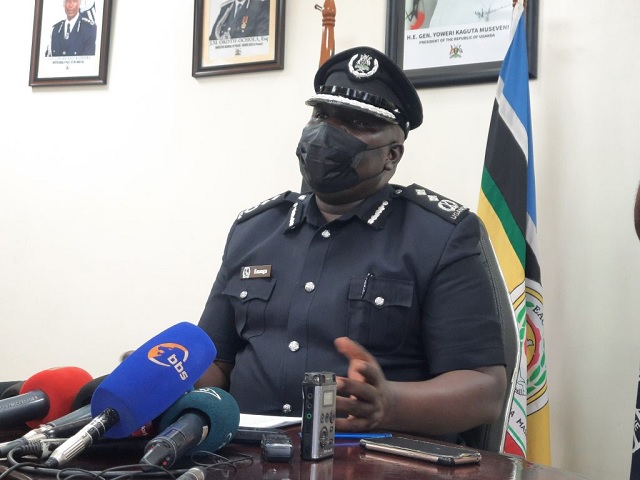
Kampala, Uganda | THE INDEPENDENT | At least three vehicles have been damaged in two separate roadside bomb explosions along the Kampala-Masaka highway in a space of seven days. The first incident occurred on Easter Sunday at around 9:30pm in Kyangoma village, Kkingo sub county, Lwengo district where a vehicle driven by Alex Busasira was severally hit.
Six days later, two cars part of the motorcade of the Principal Judge Dr. Flavian Zeija, were also hit after an Improvised Explosive Device (IED) went off at around 8:30 pm in Kalandazi village, Mpigi district.
The anti-terrorism task teams comprised of police and army have since established that the Kyangoma and Kalandazi IEDs were planted and later detonated by people who were probably not very far from the scene.
Quoting the anti-terrorism task team report, Fred Enanga, the police spokesperson said the IED that hit Zeija’s convoy was planted under a road guard rail and it was detonated as the convoy passed.
Nevertheless, Enanga said they have no evidence as to how the explosive was specifically targeting Zeija. But he explains that the device was made of various components which have since been collected by an anti-terrorism team to hunt for the group behind it.
“From the recoveries, explosive devices consisted of a variety of components. We have got shattered detonator parts, pieces of wires, cut pieces of iron bars, shuttered aluminum pieces like nails and plastic bottles which were all designed to increase the amount of shrapnel,” Enanga explains.
Security analysts Fred Egesa and Charles Rwomushana, say it is time security agencies beefed up their intelligence because roadside bombs are very lethal. Rwomushana explains that roadside bombs have the capacity to disable armored cars and they require a lot of expertise in planting and surveillance to hit the target.
“Roadside bombs are normally deliberate. What needs to be established is to know how they were detonated. Were they detonated after surveilling the target? Roadsides bombs are very impactful. They able to destroy armored cars,” Rwomushana said.
Barely two months ago, a roadside bomb killed 13 passengers on a bus in Kenya. Police and other security agencies said it was an improvised explosive device that was planted purposely to target big numbers.
Egesa says intelligence agencies need to up their game because roadside terror threats could be targeting VIP motorcades or any vehicle carrying many passengers. Without establishing who the targets are, Egesa says it could be challenging to stop that kind of terror especially when it becomes more serious.
“We have terror threats here and there. It is only that they had somehow been minimized. In a dynamic situation like this, a few keep on germinating. The impact of a roadside bomb depends on the material used and the volume of explosives. That is why you see the one who hit CPS he was carrying a heavy bag that was close to a bag of cement. It is now time to increase citizen-based intelligence. These people are not aliens.
They are human beings who are known,” Egesa explains.
No group has claimed responsibility for the two roadside bombs on Masaka road. ISIS claimed responsibility for last year’s bombs in Kampala even though security agencies said it was Allied Democratic Front (ADF) remnants.
But security analysts say government and security forces should borrow a leaf from last year’s blasts that started as a joke but ended up becoming massive. One of the major setbacks AMISOM forces have been facing in Somalia has been roadside IEDs planted by Al-Shabaab.
A number of soldiers have been killed and armored vehicles incapacitated by roadside IEDs. This is why Rwomushana urges security agencies to be swift in handling this kind of terror.
*****
URN
 The Independent Uganda: You get the Truth we Pay the Price
The Independent Uganda: You get the Truth we Pay the Price


